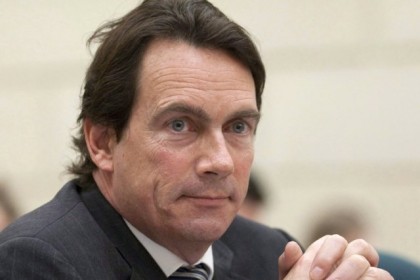In 1986, Quebec’s most renowned political scientist, Vincent Lemieux, predicted that the Parti Québécois would be the party of a single generation, lasting no more than a few more decades. Although politics is an unpredictable game and the party may yet rise from the ashes, Mr. Lemieux’s prediction seems about to be realized.
Things have been going from bad to worse for the PQ. The party just taken the worst electoral beating in its 45-year history, and it’s dropped even further in the polls since voting day. According to a recent Léger Marketing survey, it lost six points in the weeks following the April 7 election and younger voters are leaving it in droves.
Of course, it hasn’t helped that since their crushing election defeat, PQ activists have done just about everything possible to appear in a bad light. They’ve publicly quarrelled about a strategy for “selling” their product (sovereignty) to a reluctant market. They’ve blamed a variety of scapegoats (from the media to top organizers to former party leader and premier Pauline Marois). And several former star ministers have bickered among themselves while vying for the leadership – although one wonders why anyone would want to lead such a fractious and weakened entity.
There are rumours that Quebecor supremo Pierre Karl Péladeau, who was elected as an MNA in the riding of St-Jérôme and was poised to run for the leadership with the help of influential party allies, will extricate himself from the political quagmire into which he plunged so impulsively and go back to the business world.
He has an ideal pretext: His right-hand man, Québecor executive Robert Dépatie, who had replaced Mr. Péladeau at the helm of the press empire, abruptly resigned two weeks ago, allegedly for “health reasons.” Some observers say the two men disagreed on key business decisions.
In any case, according to the Léger survey, public support for the PQ is now wallowing at 19 per cent. Meanwhile, Coalition Avenir Québec, the third party that seemed to have no future at the outset of the election campaign just two months ago, is at 27 per cent, in second place behind the Liberals. “If the campaign had lasted one more week,” pollster Jean-Marc Léger told Le Devoir, “the CAQ would have passed the PQ” and become the official opposition.
Even worse for the Péquistes, who used to see themselves as the voice of progress, their party is now the fourth choice of voters under 45. Its most faithful supporters are between 55 and 64.
Predictably, support for sovereignty has reached an all-time low, with just 32 per cent of voters (and 35 per cent of francophones) in favour. Even if the PQ promised not to hold a referendum in its first mandate, 68 per cent of the electorate wouldn’t vote for the party.
Analyst Bryan Breguet, at his widely read blog Too Close To Call, has raised the possibility that the PQ will soon be wiped out of Montreal. In 2007, it held eight ridings in the eastern part of the city, but now it clings to four – and with much thinner margins of victory, to boot.
Perhaps the collapse of the Bloc Québécois in the 2011 federal election was a harbinger of what’s now happening to the PQ, instead of an isolated incident.
LYSIANE GAGNON
The PQ meltdown is near-complete

































Laissez un commentaire Votre adresse courriel ne sera pas publiée.
Veuillez vous connecter afin de laisser un commentaire.
Aucun commentaire trouvé